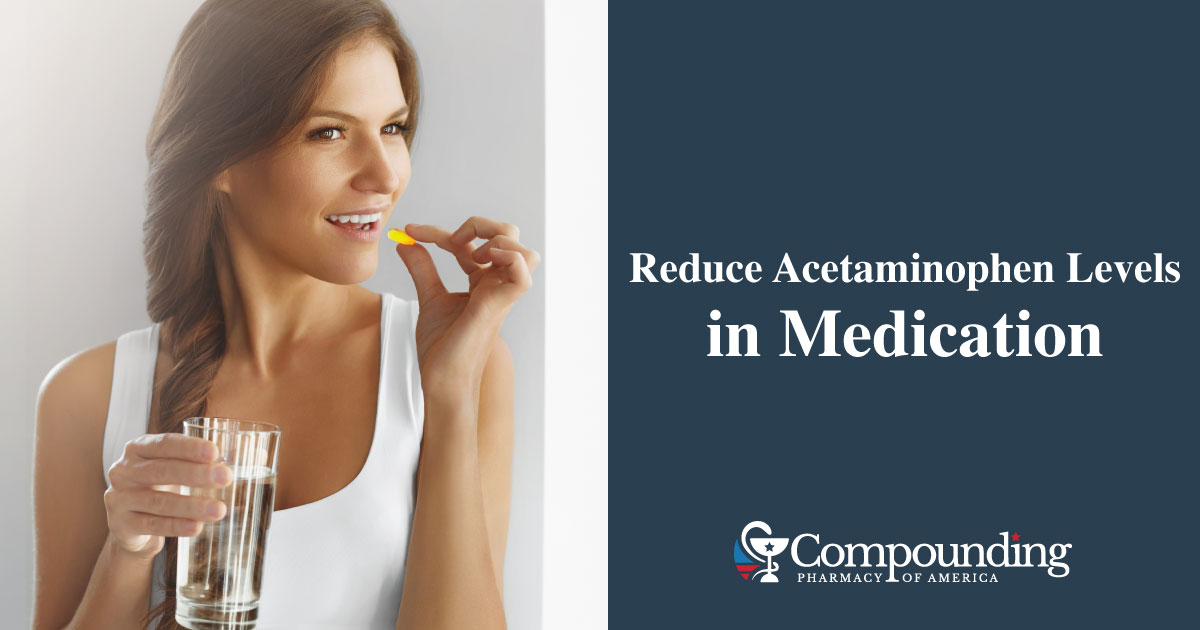Painkiller That Can Kill
Do you know what’s in your prescription and over-the-counter medication? You’re probably aware medication contains fillers, and that it may also contain substances that are bad for you.
Fillers and active ingredients can cause allergic reactions. One common painkiller causes hundreds of deaths every year.
Dangers of Acetaminophen
Acetaminophen, sold over the counter as Tylenol, may be one of the most damaging medications available. It is also the most commonly taken.
Every year, poison control centers receive more than 100,000 calls related to acetaminophen overdose. It causes more than 56,000 annual visits to the emergency room and an average of 458 yearly deaths. Liver failure causes most of those deaths. In fact, acetaminophen poisoning causes almost half of the overall cases of liver failure in the United States.
When humans metabolize acetaminophen at standard doses, they release the toxic byproduct N-acetyl-p-benzoquinone imine (NAPBQI). The more they take, the more toxin the body creates during digestion. Every person processes medication differently, and there is a thin line between a safe dose and one that causes liver damage.
People with a lower-than-average body weight or who are fasting may not have the glutathione needed to safely break down acetaminophen. Patients taking low doses repeatedly have experienced liver toxicity, especially when they haven’t ingested adequate nutrition.
The danger is especially acute in children. Doctors often recommend parents administer Tylenol when children and infants have fever. A parent might think they’re helping their infant by giving them medication, and may end up in the emergency room. If a child has a stomach condition that causes vomiting or diarrhea, they may not have enough nutrients in their system to process acetaminophen. Their risk of kidney and liver damage increases.
What Compounding Pharmacists Do
Originally, all medications were compounded. Pharmacists measured individual medication components and dispensed them to patients on an as-needed basis. During the 1950s and ’60s, mass production became more the norm and pharmacists switched to distributing controlled substances that were already mixed.
However, mass production doesn’t meet individual needs. Pharmacy compounding creates personalized medication. Compounding pharmacists mix specific ingredients at the right strength and provide only the necessary ingredients.
Besides delivering precise strengths, compounding can make unique dosage forms and flavors available, and it excludes ingredients that might cause allergic reactions in specific patients.
If patients can’t take medication in pill form, compounding pharmacists might supply it as a nasal spray or topical gel. If common dermatological formulas contain irritants, compounding pharmacists can create a customized solution with the same medication.
Sometimes children or pets won’t take prescriptions because they have a strange taste or odor. Enter compounded medications – which come in specialized flavors.
Truly Healthy Medicine
If you’re taking medication to heal or to stay well, you want to be sure you’re doing the best thing for your body. Buffers, binders, fillers, colorants, preservatives and coatings can be bad for you. Avoid the proteins, alcohol, artificial sweeteners and other ingredients commonly found in medication by choosing a prescription that’s crafted uniquely for you.
The Compounding Pharmacy of America removes fillers and unnecessary active ingredients, including acetaminophen. We ship to the following states and areas:
- Alabama
- Colorado
- Connecticut
- Florida
- Georgia
- Illinois
- Maryland
- New Jersey
- New York, Virginia
- Ohio
- Tennessee
- Washington D.C.
Contact us to speak with a compounding pharmacist today about getting your medication without unhealthy, complication-causing additives.
*Check here to see up to date service areas
Chief Operating Officer, The Compounding Pharmacy of America
Matthew Poteet, Pharm.D. graduated with Honors from Lee University with a Bachelors of Science in Biological Science. After his undergraduate training, he completed the Doctor of Pharmacy program at Mercer University Southern School of Pharmacy, graduating in 2004. Dr. Poteet has spent much of his pharmacy career on staff at two of the most prestigious academic teaching hospitals in the Southeast; Emory University in Atlanta and Vanderbilt University Medical Center in Nashville. At these institutions he received extensive experience and training in sterile products compounding.
He returned home to East Tennessee in 2010, where he has held the position of Pharmacy Director at two sterile products pharmacies in Knoxville. Matthew lives in Knoxville with his wife, Chris. Dr. Poteet is Tennessee’s first Board Certified Anti-Aging Pharmacist by the American Academy of Anti-Aging Medicine.

 Subscribe to Our Newsletter
Subscribe to Our Newsletter


